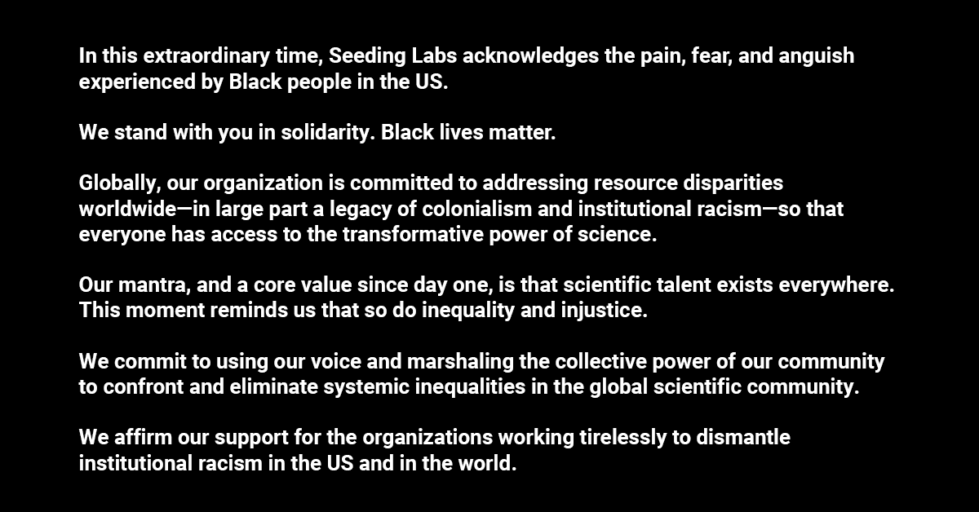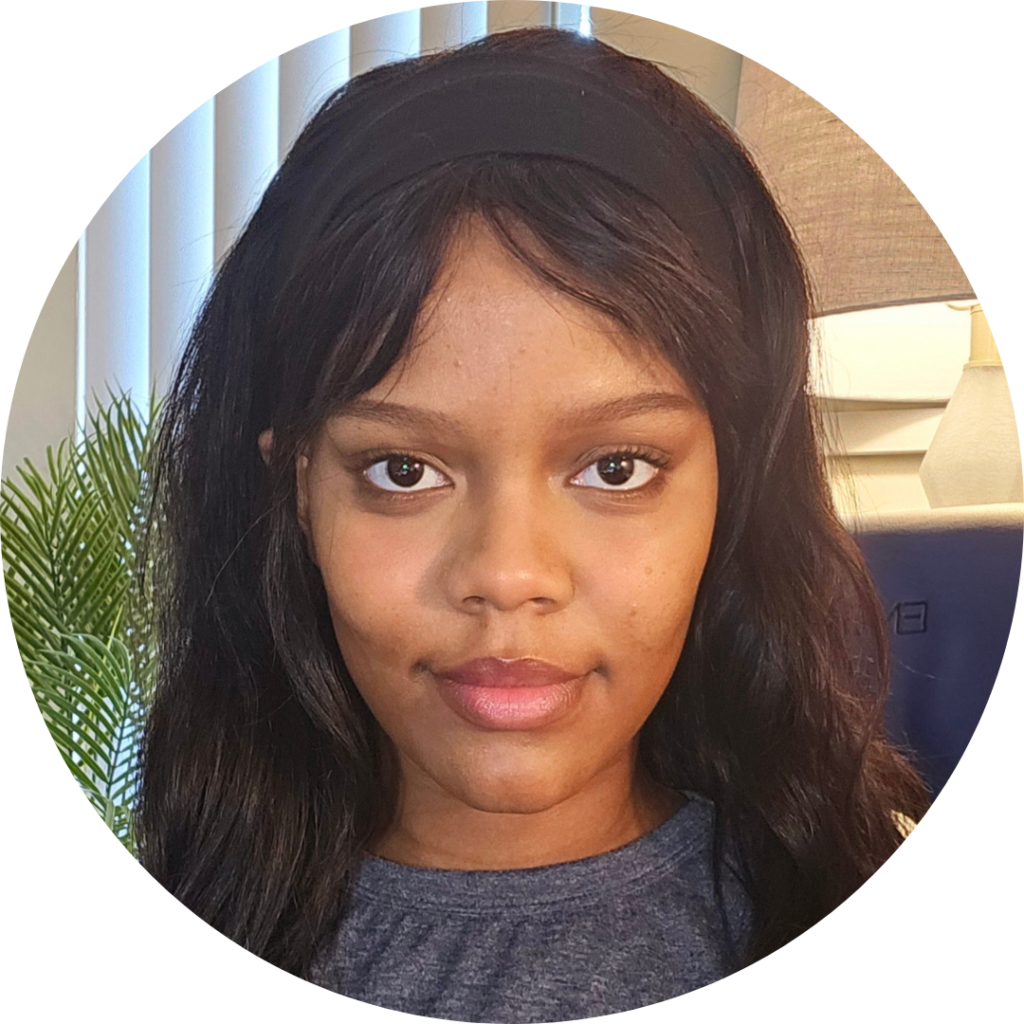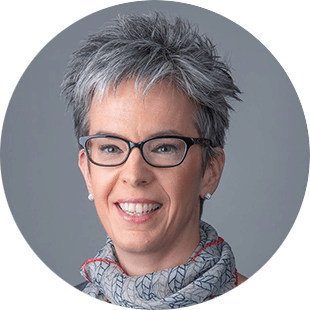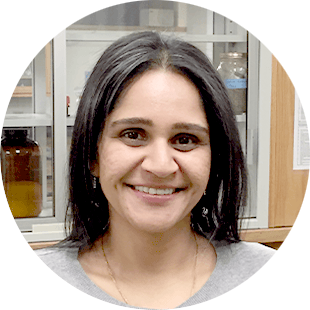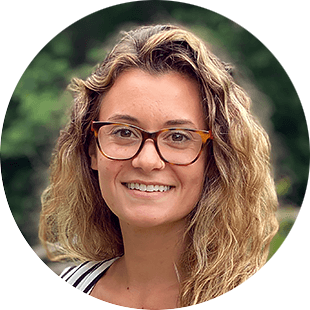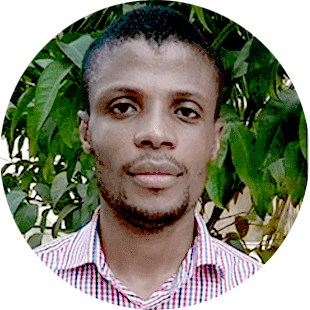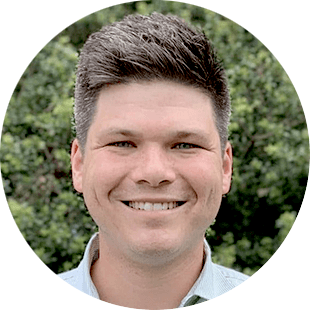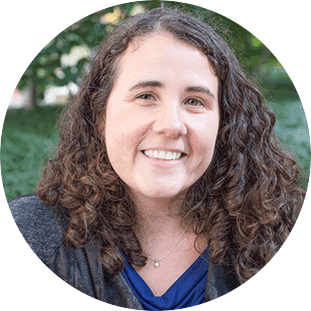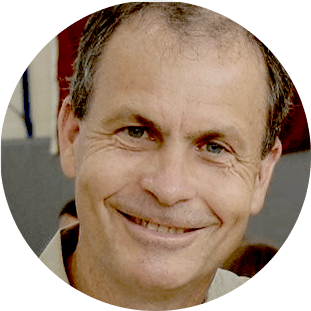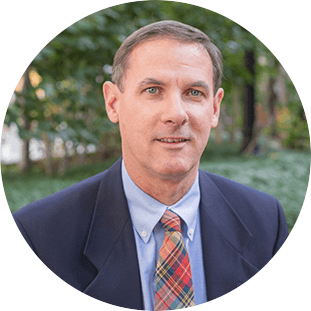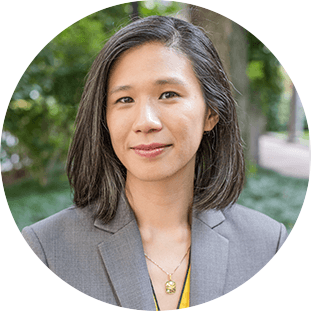A message from our CEO, Melissa P. Wu, PhD
It’s been three weeks since the senseless death of George Floyd, and sadly, his is not even the most recent death of a Black American at the hands of our police.
This has been a period of intense grief and pain, particularly among the Black, African, and African diasporans across the world and in our Seeding Labs community.
For those bearing the brunt of systematic and individualized racism, I can empathize but not fully understand the depth of emotional pain that you are carrying.
This piece by Layli Long Soldier, written as an offering to the family of Mr. Floyd and others affected, resonates with the feelings that I want to share with you:
“Why? George Floyd and I—we are from different communities, different backgrounds, different genders. On this land, our histories overlap, but in some ways, they are distinct. I have no words for why, though I can say with certainty that George Floyd’s murder hit me to my core, as if he were my brother, my own, my blood. His death—along with the recent chain of violations and murders of Black people—makes me feel desperate for the respect owed to them. Absolute respect. Not one more violation.”
I support protesters in the US and their demand for an end to police brutality. I support their calls to eliminate the systems in place that have a disproportionately negative impact on Black people. I endorse their urgent insistence that we dismantle the structures that perpetuate racism. And it is in listening to these messages that we have the opportunity for change.
I take to heart these words by Ijeoma Oluo: “When we identify where our privilege intersects with somebody else’s oppression, we’ll find our opportunities to make real change.”
As someone who has benefited in many ways from the institutions that perpetuate racism, as well as from the advocacy and progress made against racial bias, I am taking this moment as a grave insistence to take heed, reflect, and reckon.
I bring this conviction to my role as CEO, where I am reflecting on how Seeding Labs can and must do more to confront the systems that led to our existence as an organization.
We are committed to addressing resource disparities worldwide—in large part a legacy of colonialism and institutional racism—so that everyone has access to the transformative power of science.
Across borders and cultures, we are rich in talent, experience, and the shared belief that through science we can create a better world.
Our mantra, and a core value since day one, is that scientific talent exists everywhere. That soft declaration quietly challenges the perception that skin color, culture, or geography justifies the vast disparities in how scientific resources are allocated worldwide.
Yet there is more we do not talk about, and we need to. This moment calls on us to add our voice to the calls for change, and to follow that with action.
We struggle, as a US-based organization, to have a staff that fully represents the experiences of the communities that we serve. While we redistribute scientific resources, we are reliant on the wealth that has been concentrated over decades. The ways we measure our own impact are heavy in Western scientific philosophy. When we build our research portfolio, we often prioritize the inclusion of research areas that are most prioritized in a Western context.
These are weighty and powerful dynamics. As a small organization, we often feel we have no choice—we don’t have enough time, or resources, or clout … that changing these entrenched dynamics is too difficult.
But we do have a choice. We must, despite these realities, use the influence and privilege that we do have to make substantial change.
Already, we’re seeing the incredible power of these protests to make changes in our symbols, systems, and policies—but this is just the beginning.
I commit to critically examining Seeding Labs’ role in perpetuating institutionalized racism and our part in the efforts to end systemic racism.
Today and in the future, I will use my voice and place in the global scientific community to advocate for and promote equity within Seeding Labs and our worldwide community.
I commit to having the courage to put my efforts into reforming our minds and institutions to remove racial bias.
I know that I have much to learn, and these commitments are empty unless they are deep and sustained. I ask you to hold me accountable, and encourage you to make these commitments with me. I would love to continue the conversation with you; please reach out to me at melissapwu@seedinglabs.org.
